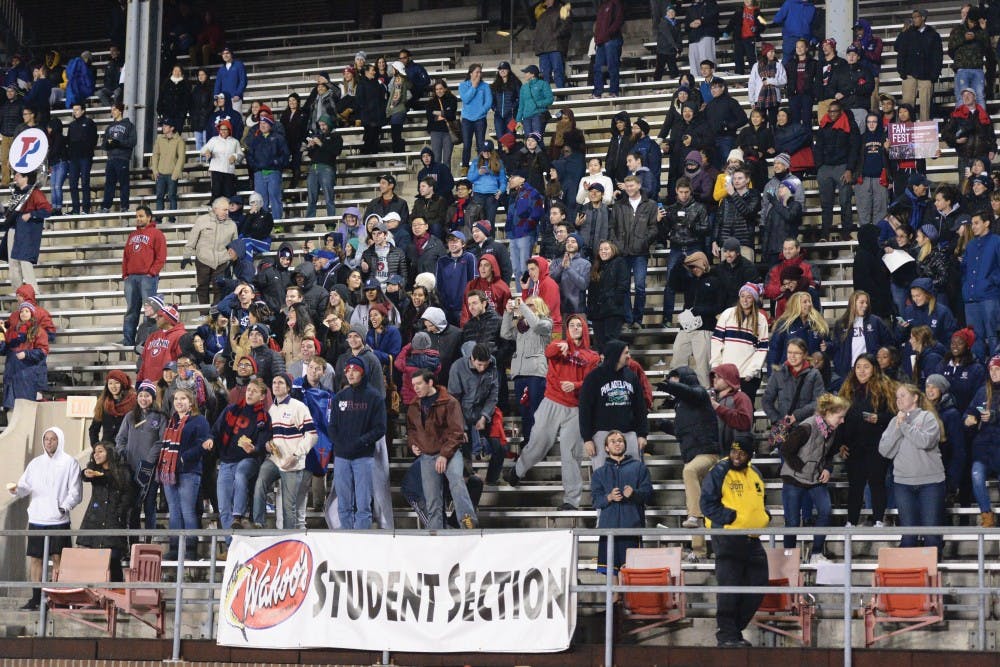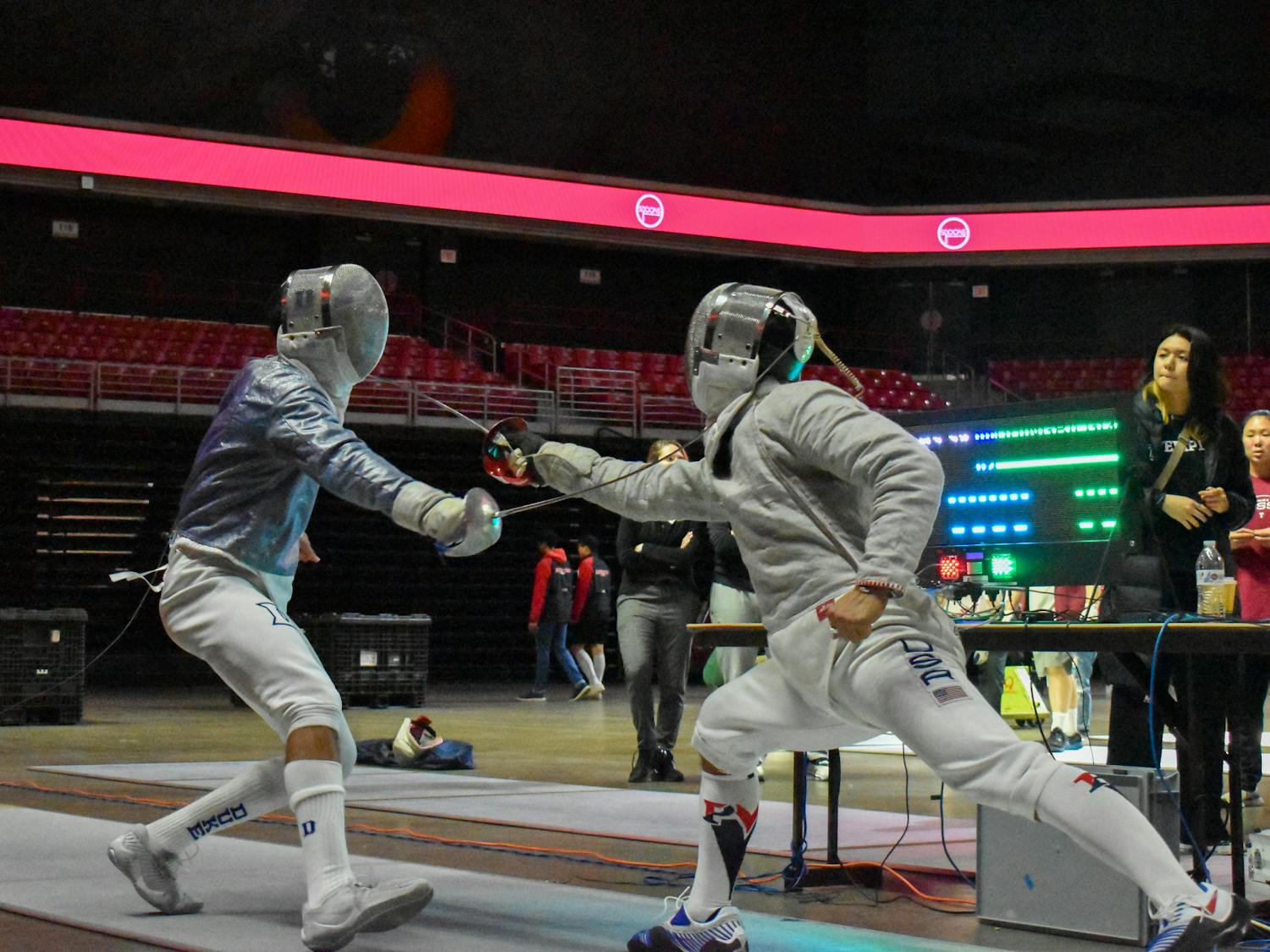The Penn administration should mandate the attendance of athletic events.
That’s right, you heard me. Penn should require its students to show up to a certain number of events over the course of their years at school here.
Obviously, the mandate should not be restricted to sports events, but I will argue the case for that specific aspect in this column. And no, I don’t think everyone should have to go to every game. But ideally, I’d have students attend 12 in order to graduate — enough to go to one each season.
This semester, I took a communication statistics class in which I had to participate in a final group project. My group chose to study Penn’s athletic culture and its effects on social inclusion and integration. Before we even gathered any data, we all agreed that it would only make sense to discover that attending and playing in sports at school helps students feel more welcome here.
What we discovered with the data from our admittedly amateur, extremely-underpowered survey was that participating in athletic culture here is positively associated with students feeling more “at home” on campus. Obviously, those who actually played at the varsity level felt this effect the most, but we have no reason to believe that there was no effect on students who merely attended Penn Athletics events.
So if we want to make students feel at home, why not encourage them to attend a game every once in awhile?
My girlfriend goes to a liberal arts school that requires the accumulation of 24 “Culture Credits” in order to graduate. The goal is simple: get students to engage with the different aspects of campus culture, like lectures, art events and theater productions. Through this, their administration says, they will become better-rounded individuals with a wider range of perspectives. The students there generally buy into the system because they see its benefits despite its strict enforcement.
Its implementation is actually quite clever. You swipe your student ID card at the event to get in for free, and then you turn in a stub at the end to prove that you were there the whole time and get your one Culture Credit. This system seems entirely feasible to me if the Penn administration chose to adopt such a stance.
But instead of just arts and culture events, Penn could tack on an athletics requirement, since that’s the aspect that really seems to be lacking. There are dozens of theater and a capella groups, but where is the school spirit?
It may be down, but it’s not out. And it’s not impossible to build it back up. It will take a concerted effort, though, on the parts of both Penn Athletics and the student body to make it happen.
From the administrative side, one requisite is that those in charge start understanding that making athletic events any less fun will ruin any spirit-building project before it’s even started. Trashing Penn students’ plans to get trashed for the Princeton football game was the cardinal sin they should never repeat. The Fan Fests are a good step in the right direction, but I fear the blow done by the Princeton fiasco might have countered any progress such events might have made.
For students, meanwhile, we need to make a concerted effort to deconstruct the ‘Penn Face’ that keeps us out of the Palestra and in Huntsman instead. How many trips to CAPS and untreated mental breakdowns will it take for us to realize that there is so much more to college than worrying about the future — which, for many of us, is already an inevitable success?
We’ve seen how difficult it can be to enforce mandatory programming at Penn — look no further than “Thrive-at-Penngate” earlier this semester — but the benefits of attending games could be too great to give up on such an idea.
The Penn Athletics Fan Fests were one small step in the right direction. But maybe we ought to take one giant leap instead.









